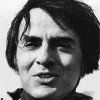“ Science and virtue, he held, are incompatible, and all sciences have an ignoble origin. Astronomy comes from the superstition of astrology; eloquence from ambition; geometry from avarice; physics from vain curiosity; and even ethics has its source in human pride. ”
Bertrand Russell, A History of Western Philosophy (1945). copy citation
| Author | Bertrand Russell |
|---|---|
| Source | A History of Western Philosophy |
| Topic | eloquence ethics |
| Date | 1945 |
| Language | English |
| Reference | |
| Note | |
| Weblink | http://www.ntslibrary.com/PDF%20Books/History%20of%20Western%20Philosoph... |
Context
“He had read Plutarch’s Lives at the age of seven, and been much influenced by them; he admired particularly the life of Lycurgus. Like the Spartans, he took success in war as the test of merit; nevertheless, he admired the “ noble savage, ” whom sophisticated Europeans could defeat in war. Science and virtue, he held, are incompatible, and all sciences have an ignoble origin. Astronomy comes from the superstition of astrology; eloquence from ambition; geometry from avarice; physics from vain curiosity; and even ethics has its source in human pride. Education and the art of printing are to be deplored; everything that distinguishes civilized man from the untutored barbarian is evil.
Having won the prize and achieved sudden fame by this essay, Rousseau took to living according to its maxims.” source
Having won the prize and achieved sudden fame by this essay, Rousseau took to living according to its maxims.” source



